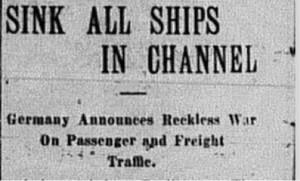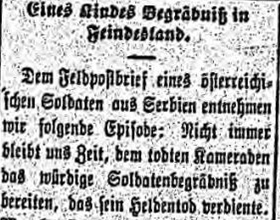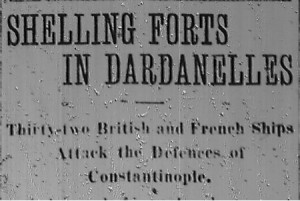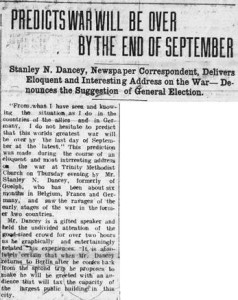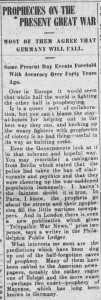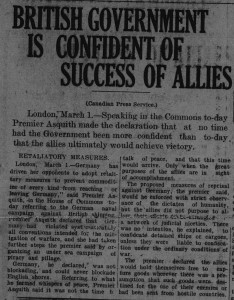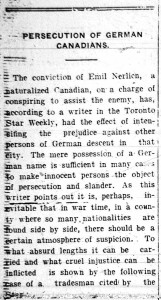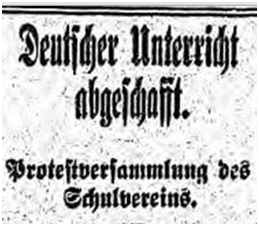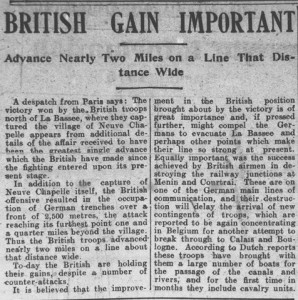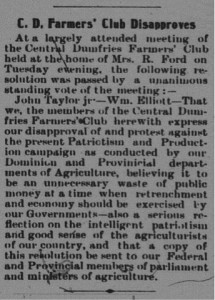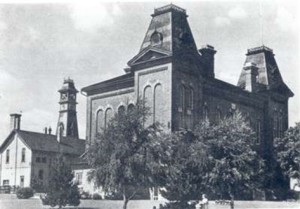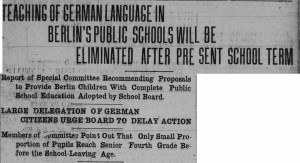German submarines had been harassing British and allied vessels in the North Sea and around the United Kingdom for some time. But, on February 18th, Germany announced publicly that their submarines would step up the frequency and intensity of their attacks on vessels around the UK:
“The waters around Great Britain and Ireland, including the whole English Channel, are declared a war zone from and after Feb. 18, 1915. Every enemy merchant ship found in this war zone will be destroyed, even if it is impossible to avert dangers which threaten the crew and her passengers.”
The same dispatch from the German Admiralty also warned neutral nations that they too were not necessarily safe from its new polices:
“Also, neutral ships in the war zones are in danger, as in consequence of the misuse of neutral flags ordered by the British Government on Jan. 31, and in view of the hazards of naval warfare, it cannot always be avoided that attacks meant for enemy ships endanger neutral ships.”
The policy was almost universally derided at the time, and would become a source of increased anti-German sentiment both internationally and in the Waterloo Region. The Elmira Signet, who reported on the announcement on February 19th, called it a “reckless war on passenger and freight traffic.”
(“Sink all Ships in Channel,” Elmira Signet, 19 February 1915.)